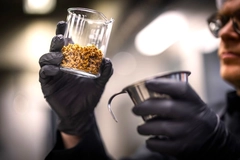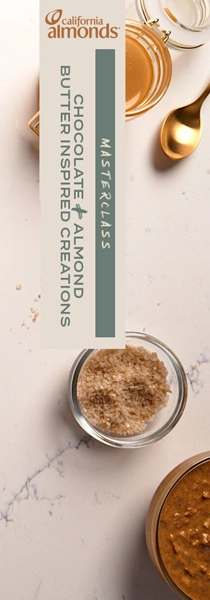
- Industry news
Industry news
- Category news
Category news
- Reports
- Key trends
- Multimedia
- Journal
- Events
- Suppliers
- Home
- Industry news
Industry news
- Category news
Category news
- Reports
- Key trends
- Multimedia
- Events
- Suppliers

28 Jan 2015 --- A survey carried out by Action on Sugar in the UK has revealed that cereal manufacturers are failing to reduce the sugar and salt content of their cereals, and in some cases, sugar content is increasing.
The survey compared its results with those published in 2012 following a similar survey by Which?. It found that the highest sugar containing cereals have either increased or stayed the same since 2012, and that 14 out of 50 cereals contain a third or more (≥33.3g/100g) sugar, or 8 teaspoons per 100g.
Parents have been warned of the dangers of hidden sugars, especially in breakfast cereals, which are contributing to the excess sugar intake and Britain’s escalating obesity epidemic and to tooth decay.

One of the worst offenders was discount supermarket brand Aldi. One bowl (30g) of it’s Harvest Morn Choco Rice with 39g sugar/100g is almost half of the draft 25g maximum adult daily intake of free sugars, i.e. 3 teaspoons of sugar and the equivalent of around two chocolate biscuits.
The cereals with the highest sugar content have not responded to the calls for less sugar, and have either increased or stayed the same since 2012. The highest sugar cereals include Aldi’s Harvest Morn Choco Rice with 39g/100g. This represents an 18% increase since 2012; Kellogg’s Frosties with the same content as 2012 at 37g/100g ; Morrisons Honey & Nut Corn Flakes with 36.3g/100g, representing an 8% increase since 2012; Sainsbury’s Honey Nut Corn Flakes with 36.3g/100g, an 8% increase since 2012; and Kellogg's Crunchy Nut with 35g/100g, the same since 2012.
Some products have improved by lowering their sugar content. The largest reductions included Aldi’s Harvest Morn Crunchy Honey Nut Corn Flakes with a 19% reduction from 34.4g to 28.0g/100g and Honey Monster Puffs (previously Sugar Puffs) with a 17% reduction from 35.0g to 29.0g/100g.
Action on Sugar says that there is no reason why cereals that are high in sugars can’t be reduced as there are identical products with less sugar. For example Sainsbury’s Honey Nut Corn Flakes (36.3g/100g) contains 43% more sugars than Lidl’s Crownfield Corn Flakes Honey & Peanuts (20.8g/100g), while Kellogg’s Special K (with 17g/100g), which is marketed as a weight-loss product, contains 36% more sugars than Lidl’s Crownfield Special Flakes Rice & Wheat (10.9g/100g).
High fibre, lower sugar and salt cereals can still play a part in a healthy diet. For example Shredded Wheat Original (0.7g/100g sugars) (which ranked the healthiest cereal in 2012), and Quaker Oats Oat So Simple Original (1.0g/100g sugars), both made with no added sugars, and Weetabix (4.4g/100g sugars).
There have been notable achievements among food manufacturers in reducing salt content since the 2012 survey, with Lidl’s Crownfield Corn Flakes coming down by 1.02g/100g (60%) and Simply M&S Cornflakes coming down by 0.45g/100g (36%). All cereal manufacturers are being asked to follow their success with reducing salt, which has lowered the nation’s blood pressure, and to reduce sugars.
These changes have been welcomed by Consensus Action On Salt (CASH). “It’s great to see manufacturers using less and less salt in their cereal products" says CASH nutritionist Sonia Pombo. “With so many of us eating cereals on a daily basis, it's important we give ourselves a good start to the day with a healthy breakfast that isn't packed with unnecessary levels of salt and sugar. As shown in this survey, there are many cereals in the market which provide healthier alternatives lower in salt and sugar".
Graham MacGregor, Professor of Cardiovascular Medicine at Queen Mary University of London and Chairman of Action on Sugar says: “Children quickly become used to the taste of high-sugar cereals and find healthier ones less palatable, which has long-term implications on their health. Eating too much sugar leads to weight gain, raising the risk of type 2 diabetes, heart disease and some cancers.
“One of the greatest failures in tackling Britain’s obesity epidemic is the government's appeasement of the food industry; we cannot allow this to go on any longer. The so-called ‘Responsibility Deal’, which allows the food industry to regulate themselves (likened to ‘Dracula being put in control of the blood bank’), has clearly failed. It’s time for it to be scrapped.”
Kawther Hashem, Nutritionist at Action on Sugar adds: “You wouldn’t give your child chocolate biscuits for breakfast, yet certain manufacturers are effectively doing that for us. It is highly concerning that many parents are still buying cereal products for their children thinking they are choosing healthier products only to find these items are laden with excess sugar and calories.
“We urge parents to make more informed food switches such as choosing wholegrain breakfast cereals but not those coated with sugar or honey. Adding fresh fruit to cereal can make it more appealing and also increase its nutritional value.”
Dr Aseem Malhotra, Cardiologist, Action on Sugar, said: "The continued failure of government action to protect children from the harms of excess sugar is contributing to unspeakable suffering and putting an increasing strain on our NHS."
Robin Ireland, Director of Food Active (foodactive.org.uk), said: “At Food Active we welcome this new research from Action on Sugar which highlights the increasing need for government to get tougher on a food industry which is failing to reformulate its products- despite ample evidence that such action is urgently required. Government should examine the findings of this research closely and consider legislative action to bring about the sort of change that is needed to protect the nation’s health from excess sugar consumption.”
To help make healthier choices, an award-winning, independent, free health app FoodSwitch allows users to scan the barcode of nearly 100,000 packaged foods and drinks to receive immediate easy to understand colour coded nutritional information along with suggested evidence-based healthier alternatives.












